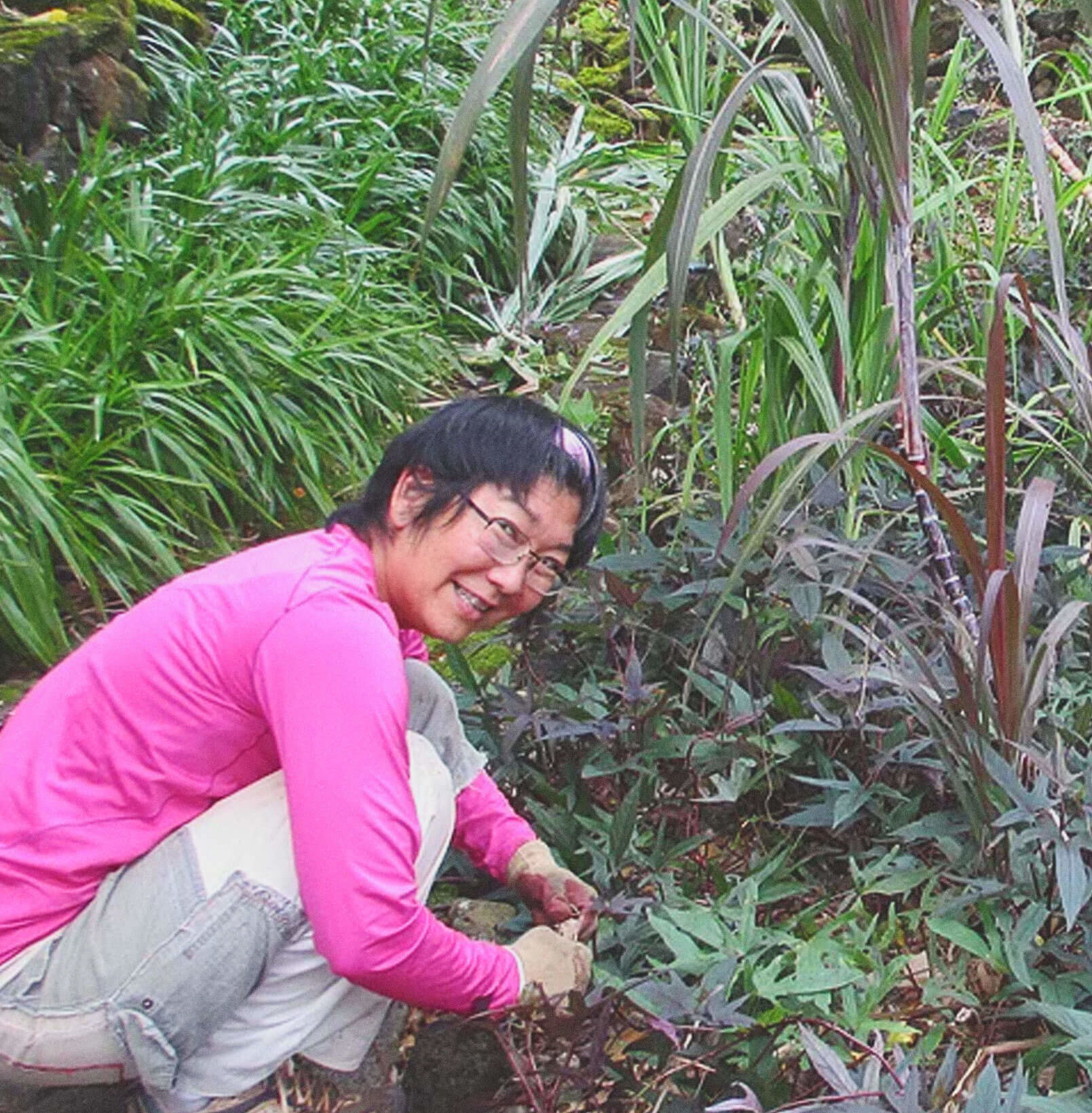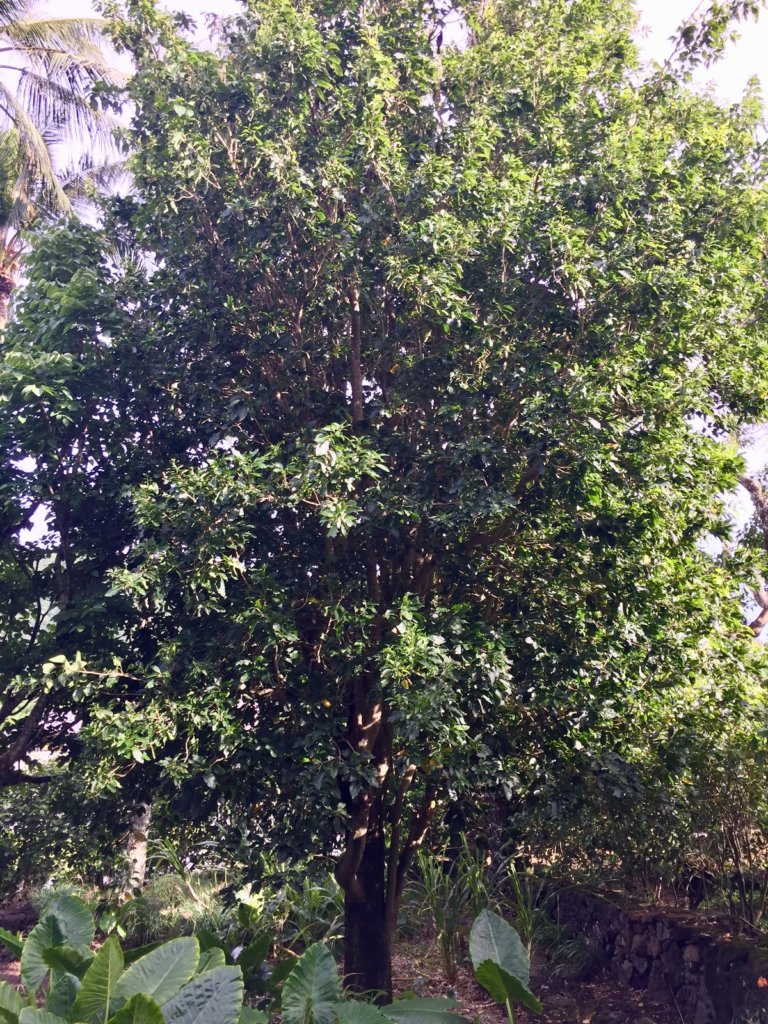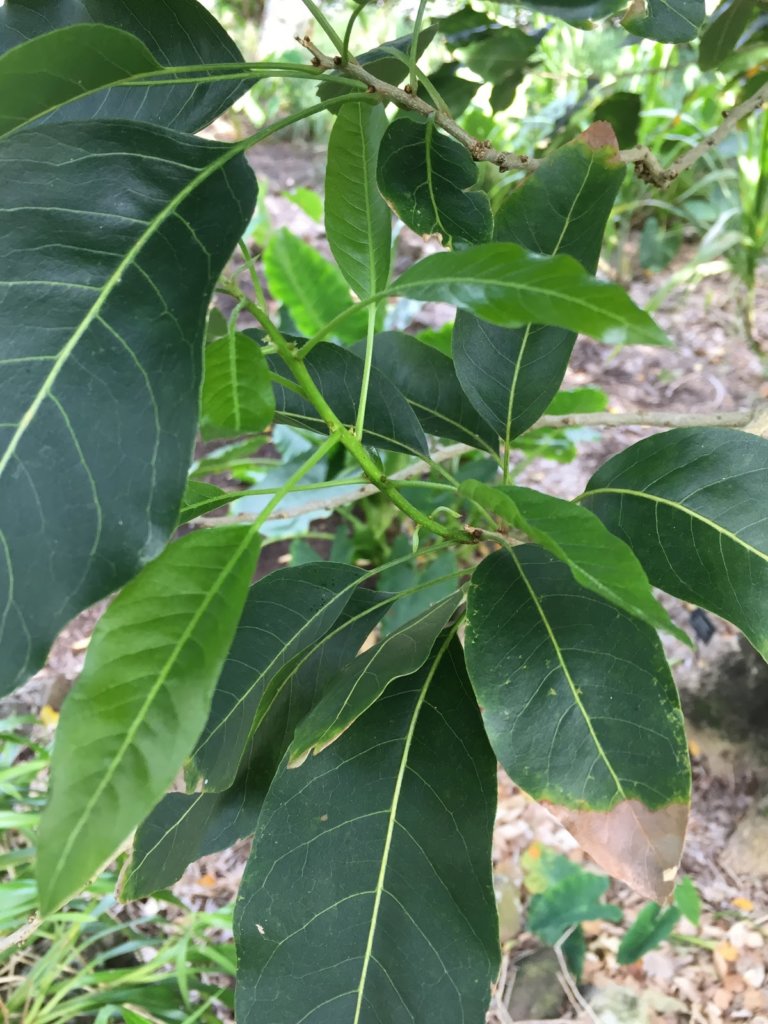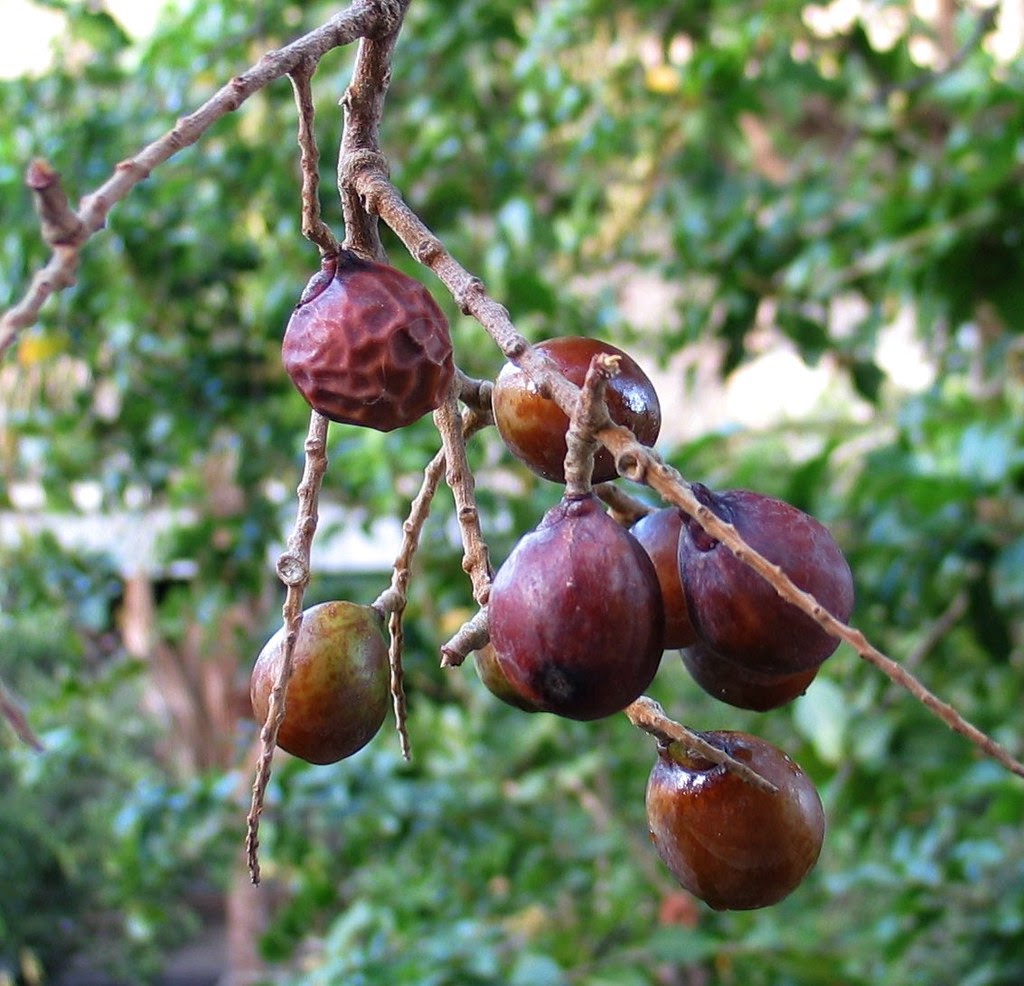The Value of Time
 By Suzan Harada
By Suzan Harada
As we are all adjusting to new daily rhythms—although there are many uncertainties, one clear gift is time. I save hours each day by not having to commute. These hours can go towards physical wellness I never had time for before, casual gardening that got lost in the blur of “normal” days, even just noticing when the light hits a certain spot in my yard and how it transforms it. We recently asked longtime MHC plant expert and garden volunteer Suzan Harada about the value of time and how it informs our connection to the ‘āina (land). How are you using your newfound gift of time? – Jenny Engle, Director of Education

Re-examining “timing”—being able to work in nature means reading nature and nature does not recognize our time…For example, at the beginning of the week, I was 40 minutes to 1 hour off in getting soil amendments on the ground BEFORE the rain. I had to do this in the rain—-which is okay, but probably reduces the effectiveness of the amendments and is a small “waste” of my time. But I did get it done—-and now the rain will soak the stuff into the ground instead of me using precious city water to soak stuff into the ground for the planting. People might think why go out in the rain?— because now the rain does the work.
When I know rain is coming, I try to maximize the opportunity rain brings. Getting stuff planted, putting down soil amendments that the rain will soak into the ground, moving or covering things that will be waterlogged.
In another week or two, it will be a good time to cut grass/invasive species to slow growth—and continue to keep bad stuff from taking over and/or seeding. And if it rains again—the rain will speed up the decomposition of the stuff that is cut. So this is not in a book—-this comes from being out and taking in the environment—all very time-consuming thing…but if you take the time to examine with your own senses—-you’d be surprised how much you know, and how much you don’t know—-and be willing to take the time to learn.
So maybe you can do things like keeping a journal—What’s blooming in the yard? On your street? In the park? What time do birds start talking? How many times a day can you hear the wind blowing on a window?

Lonomea Leaves 
Lonomea Fruit.
Photo Credit David Eickhoff via Flickr
Suzan Harada has volunteered in the Manoa Heritage Center gardens every Monday for over 7 years. She is one of our most dedicated native plant ambassadors. We could not do what we do without her kokua (help). When she is not at MHC, she is learning from the ‘iliahi (sandalwood) at Palehua, or working with botanists at Lyon Arboretum or Bishop Museum. Thank you, Suzan!
